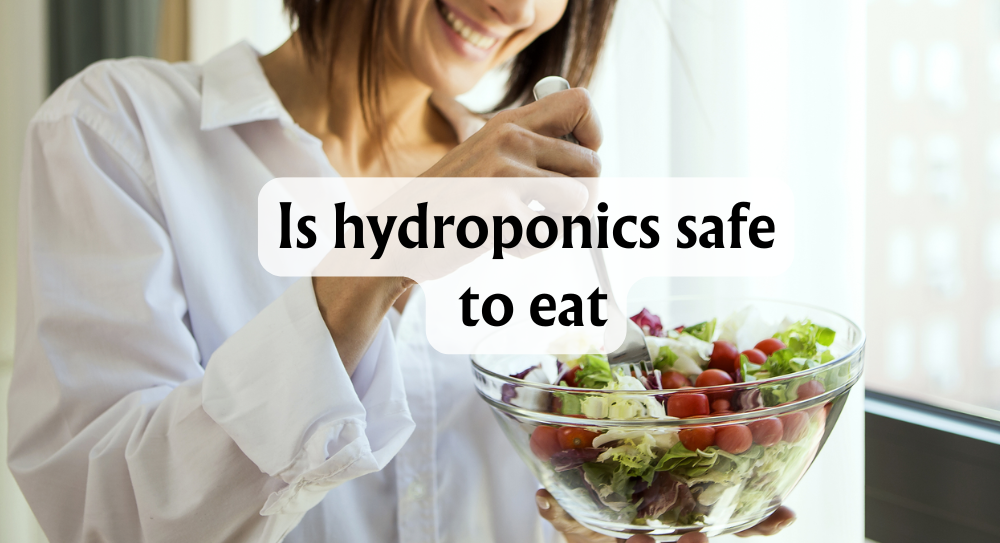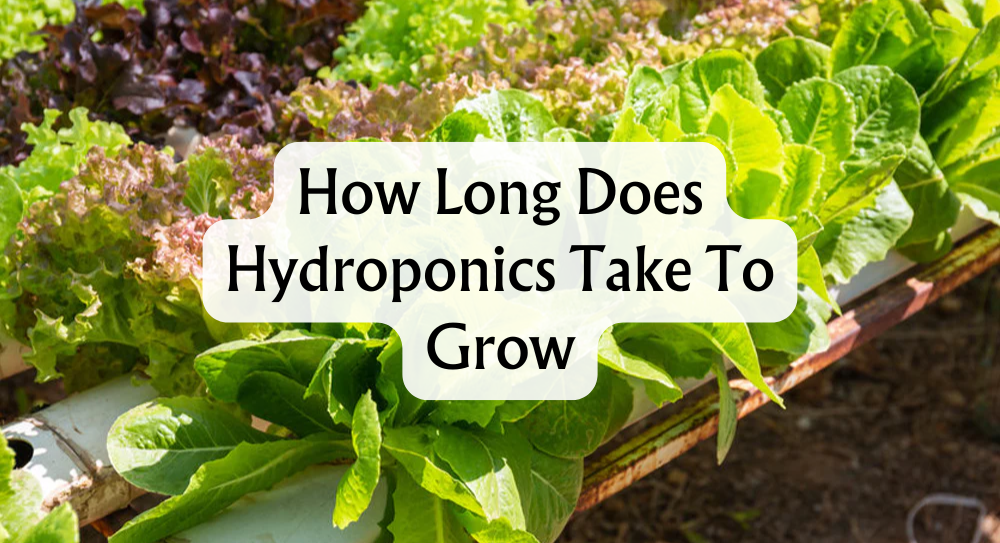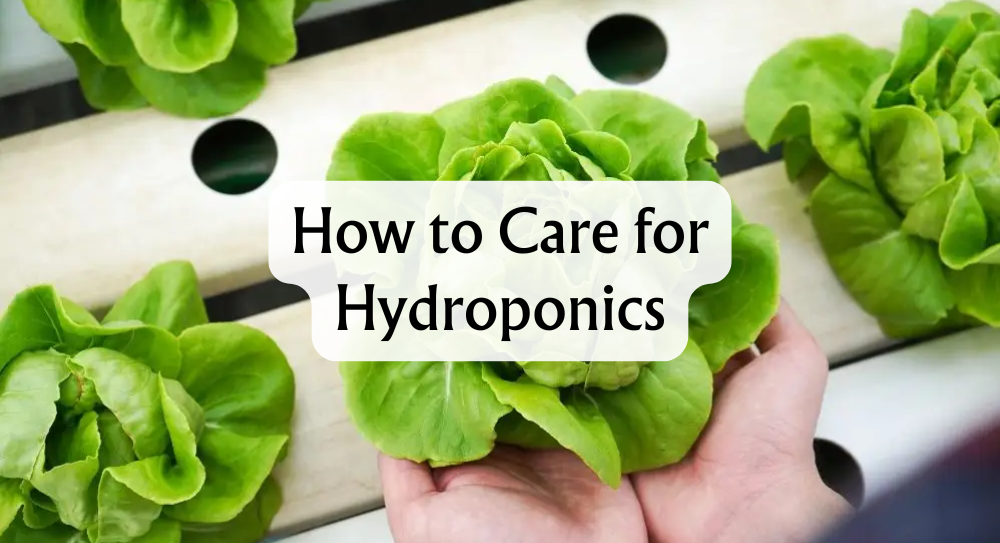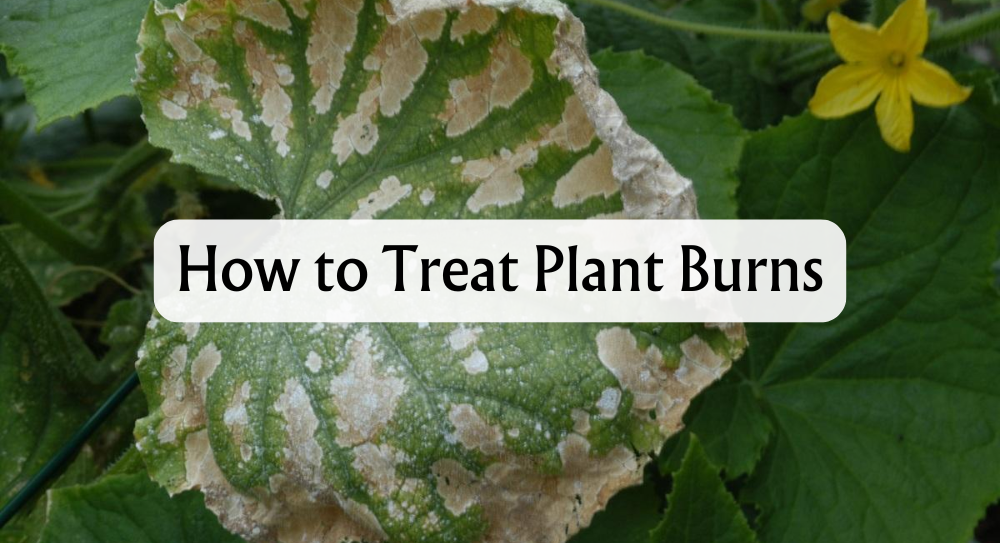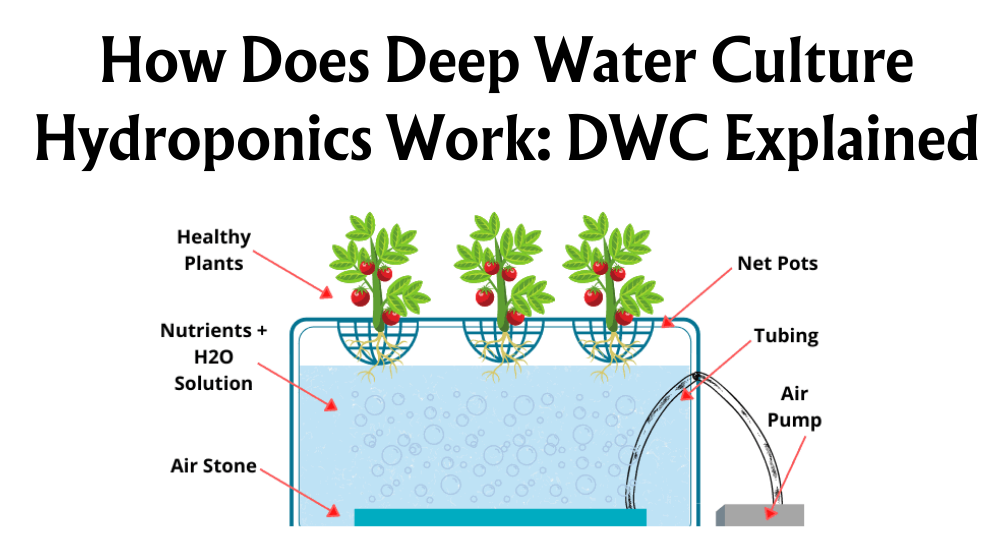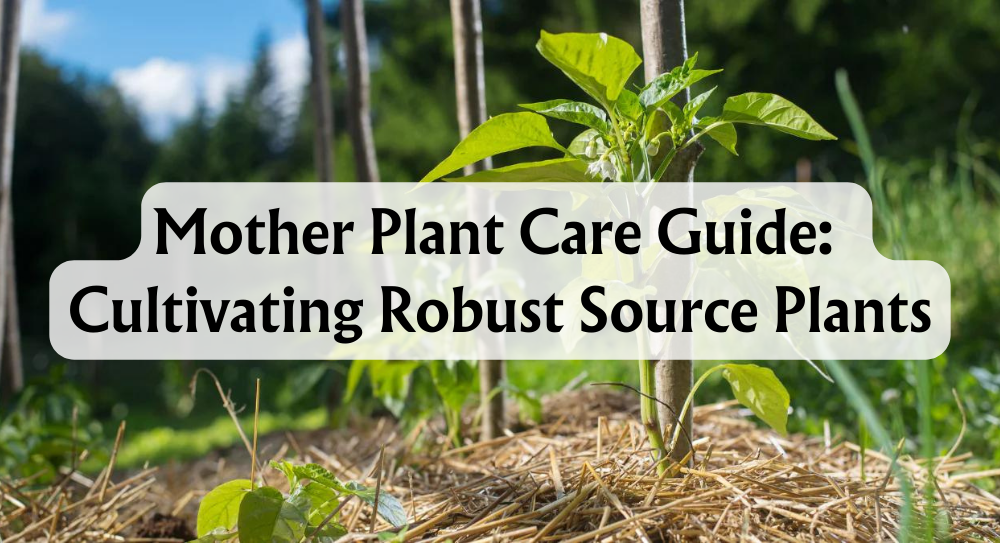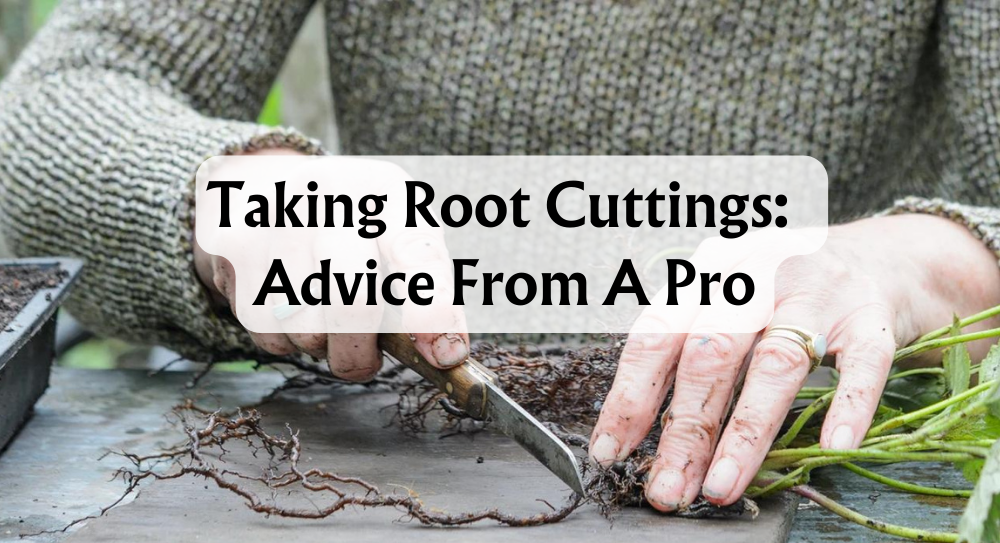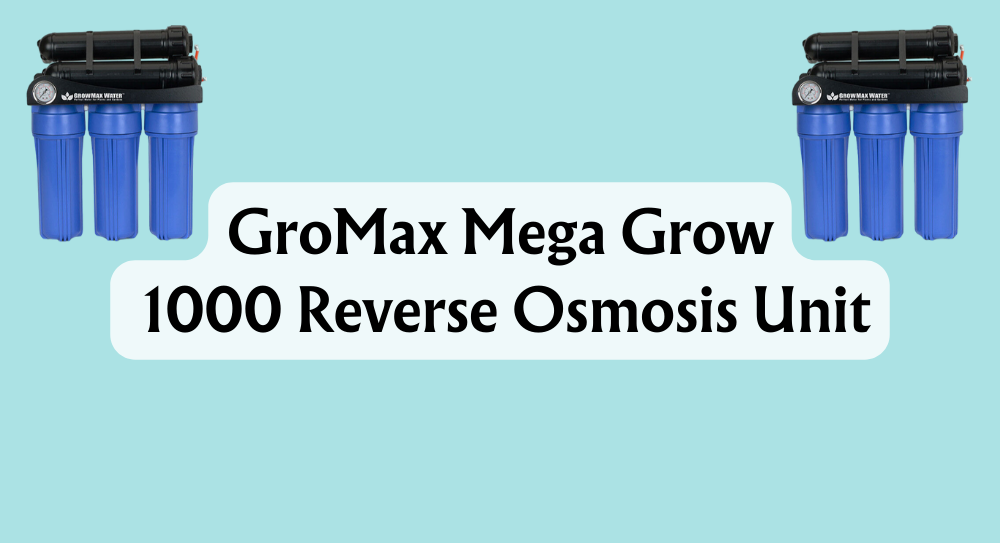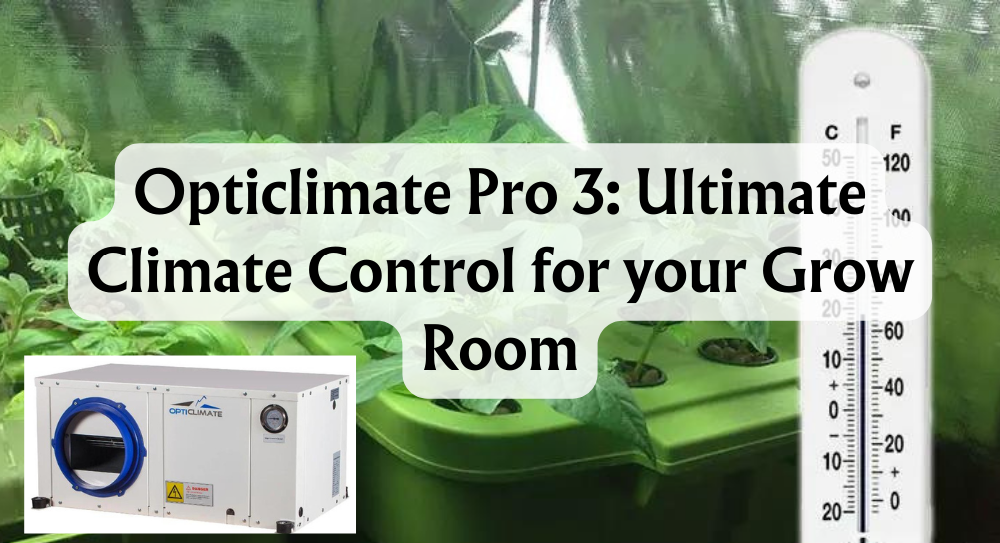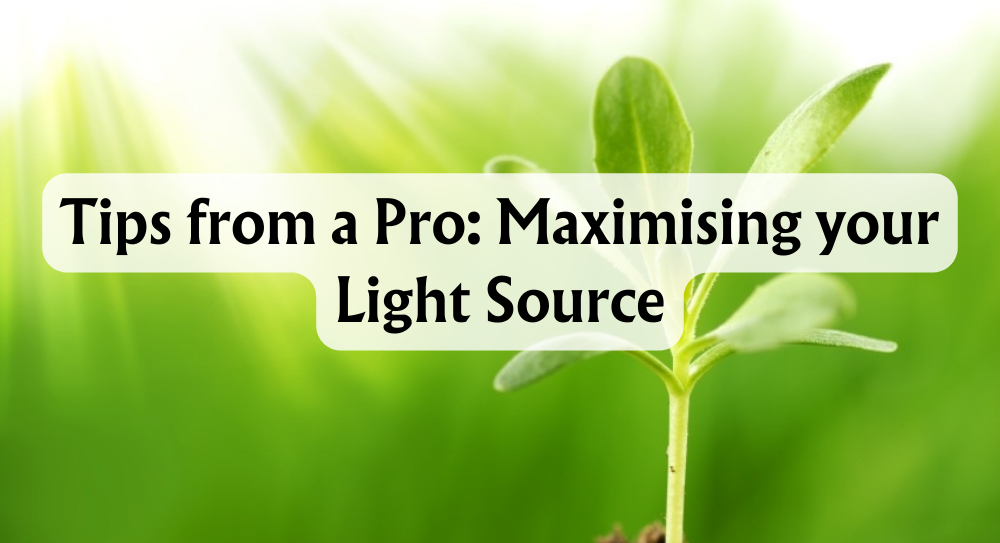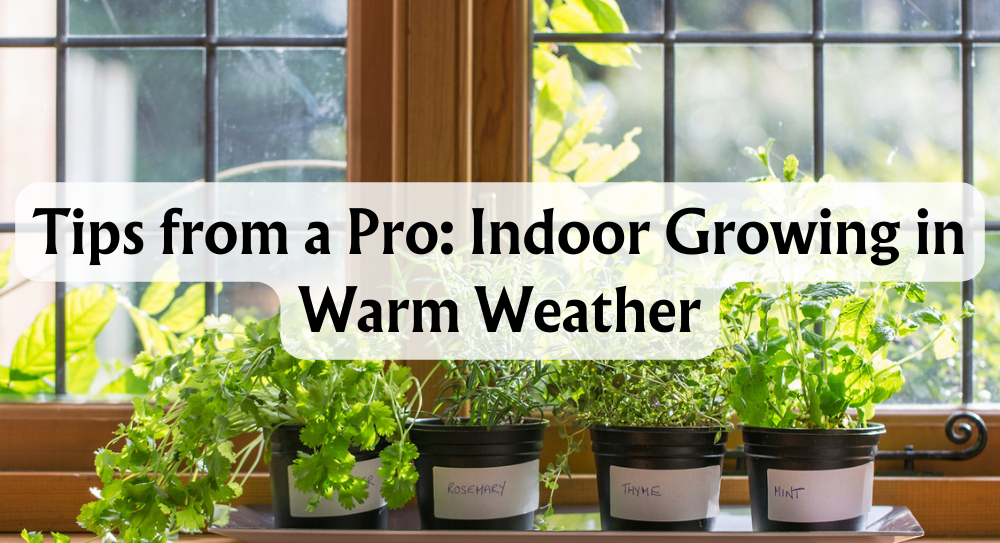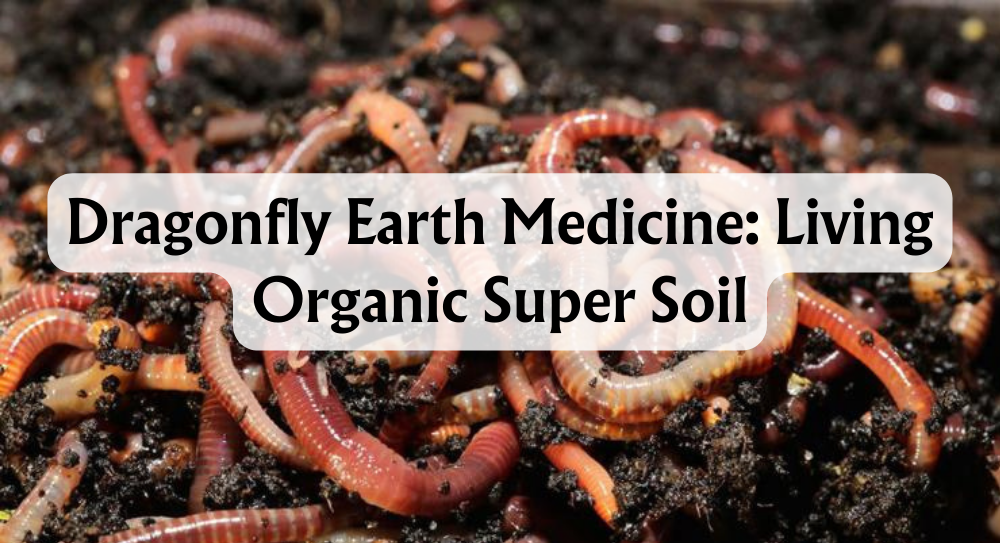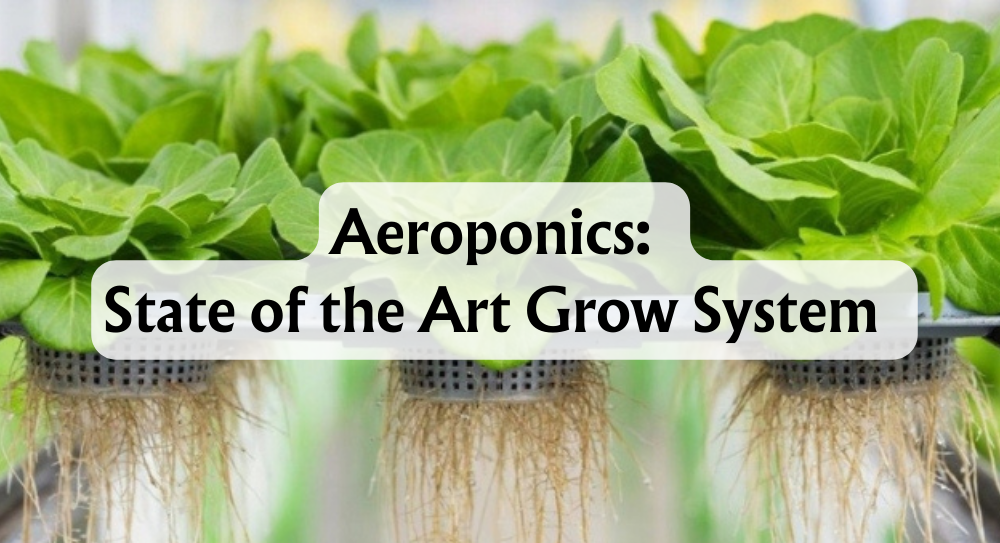Is Hydroponics Safe to Eat?
In today's world, where sustainability and food safety are of growing concern, hydroponics has emerged as a modern solution for agriculture. This soil-less method of cultivating plants has captured the interest of many, offering fresh produce with controlled nutrient delivery. Hydroponic fruits and vegetables are safe to eat and can even surpass traditional soil-grown vegetables and fruits in nutritional value. This innovative approach to farming promises less water usage and reduced dependency on harmful chemicals, which often results in fewer pests.
Understanding the appeal of hydroponic produce involves debunking common misconceptions, particularly those surrounding its safety. Some people might be cautious about consuming hydroponic harvest due to fears of contamination. Yet, these worries are generally unfounded. With proper regulation and testing, the openings to contaminate hydroponically grown vegetables are minimised. The controlled environments in hydroponic systems not only help in maintaining food safety but also enhance the nutritional content of these crops.
Key Takeaways
- Hydroponic vegetables are safe and nutritious.
- Misconceptions about safety often lead to unnecessary concern.
- Controlled environments improve food safety and quality.
What Are Hydroponic Growing Systems?
Hydroponic growing systems allow us to cultivate plants without the use of soil. Instead, plants grow in a solution of water and nutrients. This method offers a controlled environment that can boost plant growth and productivity.
Types of Hydroponic Systems:
- Deep Water Culture (DWC): Plants are suspended with roots submerged in a nutrient-rich solution. This system is simple and cost-effective.
- Nutrient Film Technique (NFT): Nutrient solution flows over the roots in a thin film, providing consistent hydration and nutrients.
- Drip Systems: Nutrients are dripped onto the plant base. This is flexible and suitable for various plant sizes.
- Wick System: A passive setup where a wick draws nutrients to the roots from a reservoir.
Each system has its safety protocols, ensuring that plants are grown in optimal conditions.
Safety and Food Quality:
We gain several benefits from the controlled environments of hydroponic systems. This includes precise monitoring of nutrients and sanitation protocols to maintain food safety standards. For instance, advanced commercial facilities implement stringent hygiene measures to ensure clean and safe produce.
Our role as hydroponic growers involves using these systems effectively, utilising artificial light when necessary, to optimise plant growth and ensure the highest quality crops. Through these techniques, hydroponic gardening continues to evolve as a safe and efficient agricultural practice.
Are Hydroponic Vegetables Nutritious?
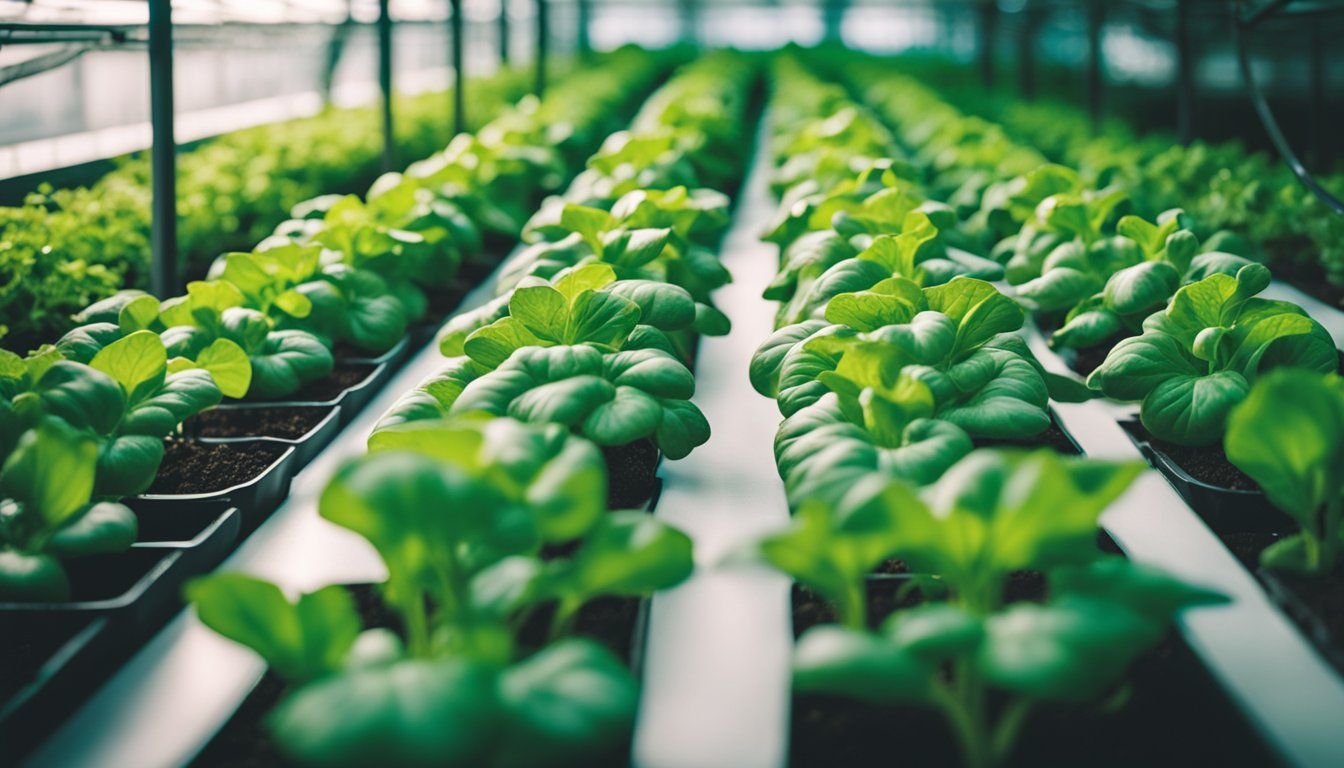
When we consider the nutritional value of hydroponic vegetables, they can often be on par with, or even surpass, those grown in soil. These veggies typically have a rich content of vitamins and minerals, thanks to their growth in nutrient-rich water.
Research shows that certain crops like lettuce and tomatoes can have higher levels of vitamin C, potassium, and even antioxidants. A notable example is lycopene, often found in tomatoes, which can be more abundant in hydroponic plants.
The mineral content in hydroponic vegetables is directly linked to the quality of the nutrient solutions they receive. By managing the nutrient formulas effectively, we can enhance the nutrient absorption of these plants, contributing to their superior nutritional content.
Factors like light exposure, temperature control, and humidity play crucial roles in determining the quality of hydroponic produce. Ensuring optimal conditions can significantly improve the nutritional content.
Scientific studies have been shedding light on these vegetables' nutrients. For instance, research from various universities has indicated that hydroponic veggies can match, if not beat, their soil-grown counterparts in nutrient density.
Our attention to detail in managing pH levels and EC (Electrical Conductivity) monitoring also ensures that these plants maximise their potential. Thus, cultivating hydroponic vegetables with a focus on these aspects can offer us significant nutritional benefits.
Are Hydroponic Vegetables Safe to Eat?
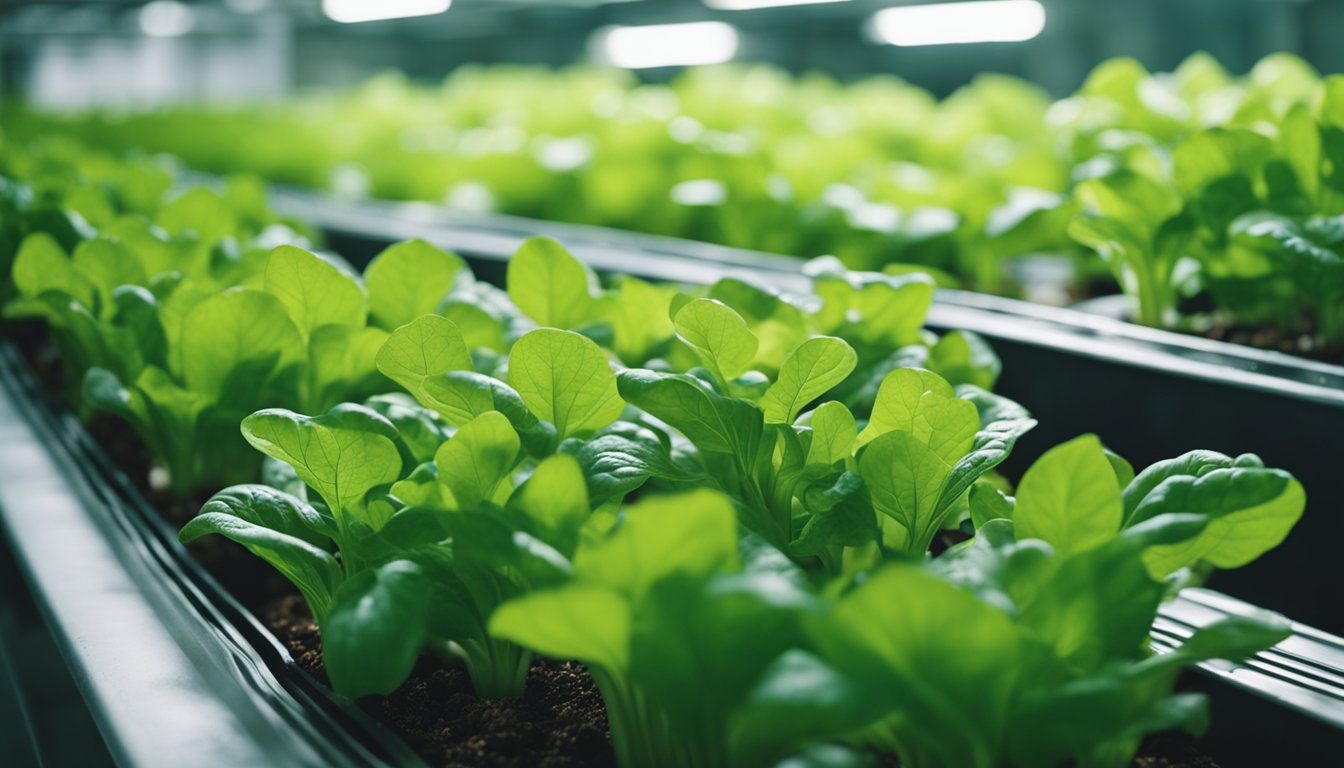
We often wonder if hydroponic vegetables are safe for consumption. The good news is that they generally are, thanks to stringent safety protocols.
Safety Standards
Our farming practices align with FDA regulations and USDA guidelines. These are supported by industry certifications, ensuring quality control in production. The traceability systems in place help us track the origins of our produce.
Benefits of a Controlled Environment
Hydroponically grown foods are nurtured in a controlled environment, which offers several perks. Reduced use of pesticides is a major benefit. Cleaner growing conditions and lower contamination risks contribute to food safety.
Food Safety Advantages
The absence of soil means fewer soil-borne diseases. We carefully control water quality, which further enhances safety. Minimal handling and robust traceability ensure the vegetables are fresh and safe to eat—a big win for food safety.
Taste and Health Benefits
Hydroponically grown vegetables often boast a fresh taste. Nutrient levels can be optimised, potentially surpassing traditional farming methods. This method supports year-round production, offering consistently fresh produce.
These advances in hydroponic farming mean we can enjoy hydroponic fruits and leafy greens with peace of mind. Hydroponic foods not only meet safety standards but also provide tasty and healthy choices for our diets.
Typical Concerns
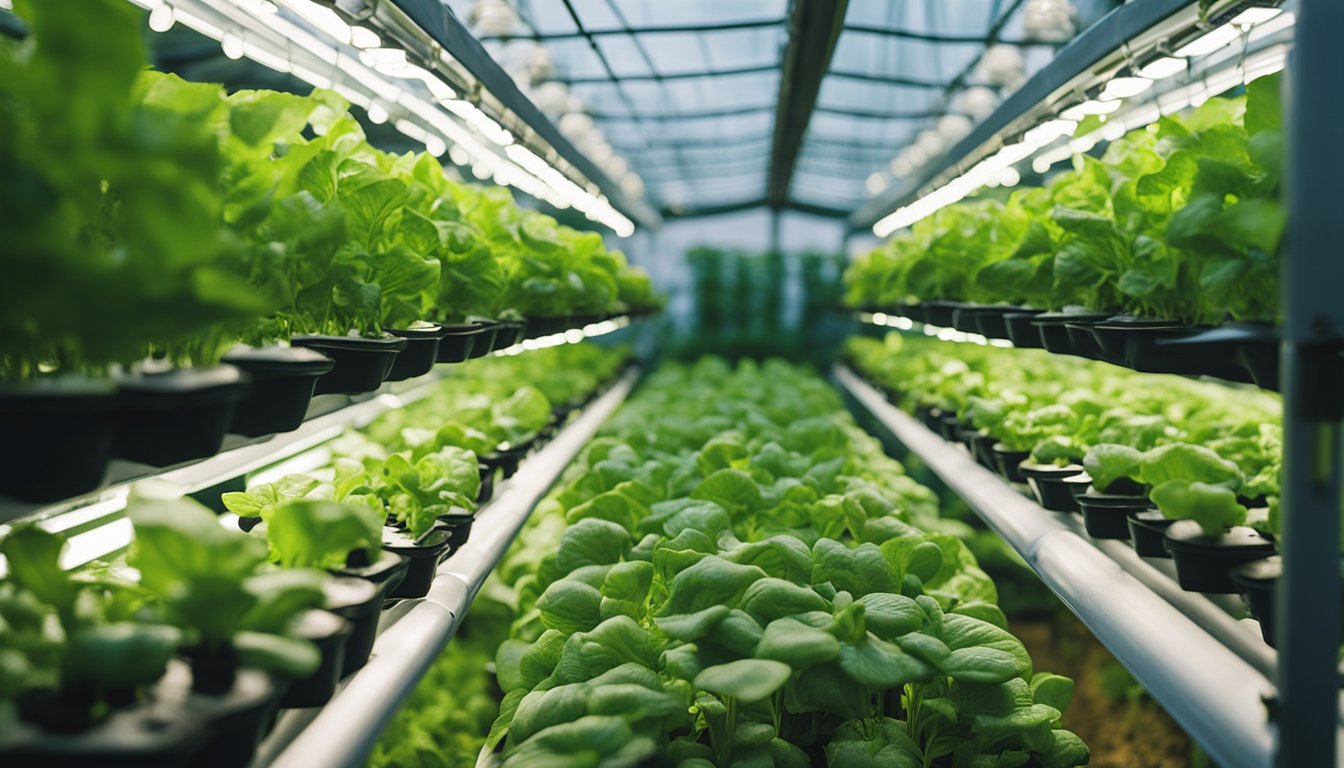
When considering the safety of hydroponically grown produce, we often encounter various concerns. These range from the nutrient solutions used to grow the plants to potential contamination with harmful substances. Let’s take a closer look at each aspect.
Nutrient Solution Formulation
One typical concern is the nutrient solution formulation. Safety standards are strict, with approved nutrients tested to ensure quality and adherence to protocols. Essentials like nitrogen, phosphorus, and potassium are balanced in precise ratios. The notion that "chemical" nutrients are harmful, as opposed to "natural" ones, is a misconception. Hydroponic nutrient solutions are generally safe when properly formulated and managed.
Quality control is paramount. Nutrients used in hydroponics are closely monitored, ensuring plants receive what they need without harmful residues.
Hydroponic Vegetable Nitrite Content
People often worry about nitrite content in hydroponic vegetables. The distinction between naturally occurring nitrates and those artificially added is crucial. Safe levels are established, and rigorous testing ensures that produce remains within these limits.
Prevention strategies involve careful monitoring of fertilizers, alongside industry standards that dictate safe nitrate levels. Regular testing procedures help mitigate risks, assuring consumers about the safety of their greens. Research continues to support low nitrite levels, aligning with safety protocols.
Heavy Metal Content
Heavy metal contamination is a critical risk factor. Sources can include water or growing media, but prevention depends on thorough testing protocols and monitoring. Regular checks are essential to ensure quality. Choosing the right growing medium and conducting water quality testing are part of standard practices.
Commercial facilities often run case studies to ensure no heavy metal build-up. Continuous monitoring and testing contribute to safer hydroponic produce. Implementing these safety measures helps reassure consumers of the products’ integrity.
Chemical Leaching from Plastic
Chemical leaching from plastic systems is a concern for many. Using food-grade materials reduces risks. Certification standards and industry regulations are in place to guarantee safety. Proper selection and maintenance of materials play a significant role in preventing chemical residue in hydroponic outputs.
Regular inspections and following industry recommendations on replacement schedules are strategic measures. Expert recommendations guide growers on the safest practices, ensuring that any risk of contamination is minimised. This health-first approach helps keep our hydroponic produce safe to eat.
Conclusion
When it comes to hydroponics, food safety is a primary concern. Hydroponically grown crops benefit from a controlled environment that limits contamination risks like pesticide residue. This closed-loop system ensures precise nutrient delivery, contributing to the safety of our food.
Scientific consensus points to the safety of hydroponically grown foods. These systems reduce resource waste and have minimal negative environmental impacts. Proper management of humidity and water levels is crucial in avoiding issues like salmonella contamination.
Consumer confidence can increase with awareness of these systems. Knowing that hydroponic vegetables can have fewer chemicals will help. Let's build trust by highlighting these controlled practices and the sustainable nature of this method.
Looking to the future, hydroponics offers a promising solution for increasing crop yields and enhancing food security. By optimising crop production in urban areas, we can support a growing population while reducing the carbon footprint associated with traditional farming.
In summary, the benefits of hydroponics—safety, efficiency, and sustainability—provide a strong case for its role in future agricultural solutions. Our understanding of this system underscores its potential to feed the world responsibly and effectively.







 Store Locator
Store Locator
